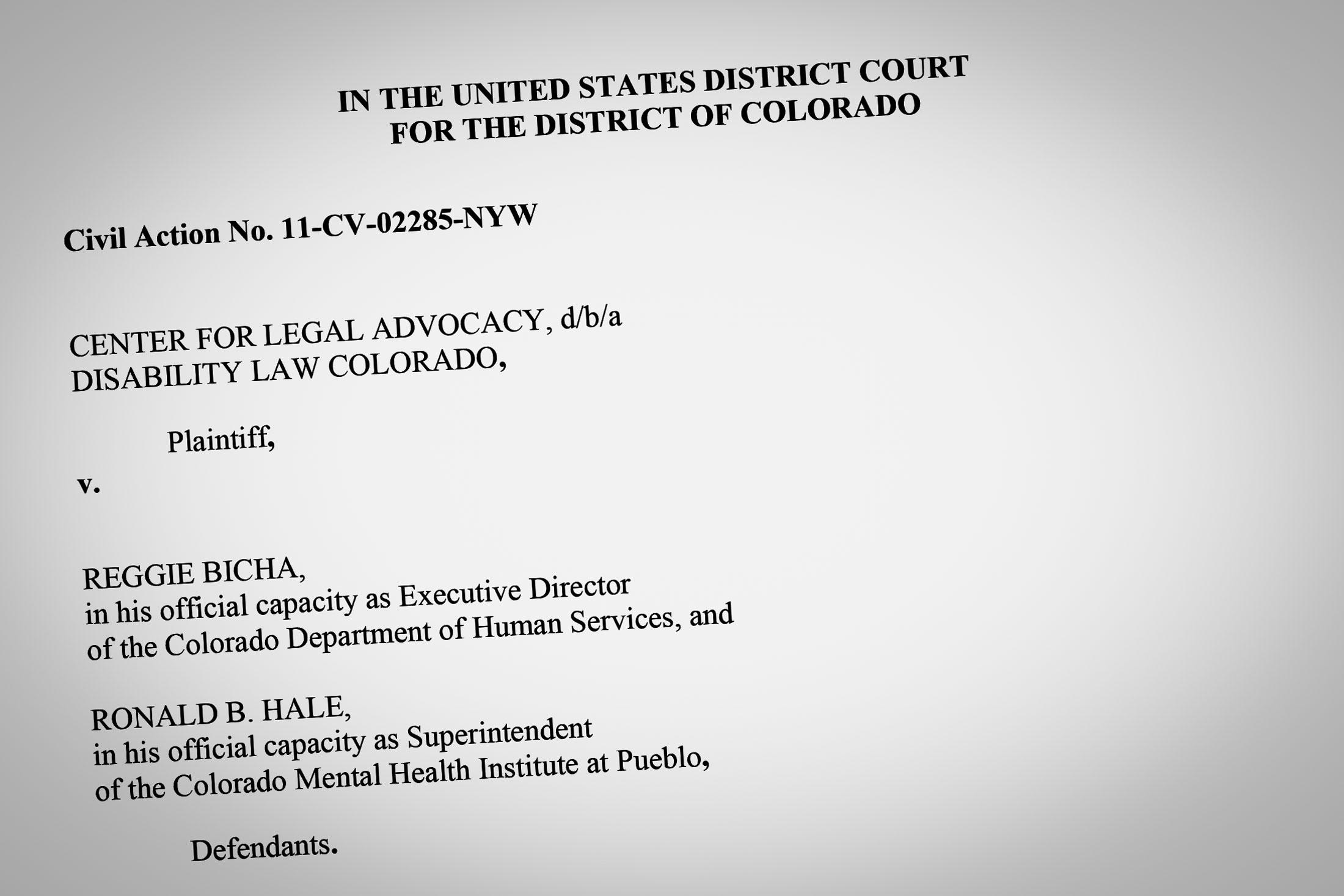
State officials have been sued for the fourth time in a decade for violating a court order that guarantees mentally ill people facing criminal charges receive treatment within about a month.
Lawyers for Disability Law Colorado say that they have been working with state officials for months to find solutions to the growing backlog of mentally ill people sitting in jail awaiting treatment at a state-run mental health facility.
“The wait times bear no relationship to the offenses these individuals have been charged with, which are often low-level and non-violent,” according to the complaint, filed in state court Wednesday. “The result of these lengthy, unconstitutional delays is a vicious cycle. The longer the state makes these individuals wait for evaluation and restorative services, the more exacerbated their mental illnesses become.”
The request to reopen the existing settlement agreement comes at a time when officials from the Colorado Department of Human Services say the number of mentally ill people in jail has skyrocketed.
Requests for competency evaluations increased 524 percent since 2000 and requests for mental health treatment for people facing criminal charges have increased 931 percent in that same timeframe, state officials said.
“Disability Law Colorado’s decision to reopen the litigation ignores the department’s efforts to find a workable solution to the backlog of court-ordered competency evaluations at our state hospital,” said Robert Werthwein, director of the Office of Behavioral Health. “The department does not currently have the bed capacity to keep up with the extraordinary demand in competency evaluations and restoration.”
State officials signed a settlement agreement in 2016, which required them to get mentally ill people a competency evaluation within a month and treatment for that mental illness, if incompetency was found, within about another month.
The lawsuit alleges hundreds of people are waiting months for mental health treatment in jail, pre-trial, which means they haven’t been convicted of anything.
“Rather than partner with and fund community mental health treatment centers or initiate and support legislative changes to remedy the current situation, the State has unconstitutionally used county jails as its own private self-storage to house the mentally ill,” the complaint said.
CDHS Executive Director Reggie Bicha, who is named in the lawsuit filed Wednesday, proposed a bill to the state legislature that would have given the state permission to treat mentally ill people in jail, rather than move them to a mental hospital or other treatment setting.
Disability advocates opposed the bill and it died at midnight on the last day of the legislature thanks to a filibuster.









